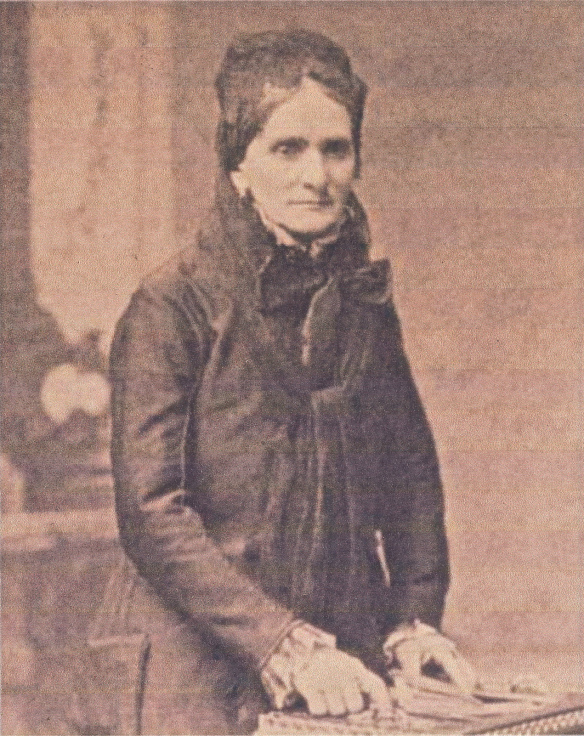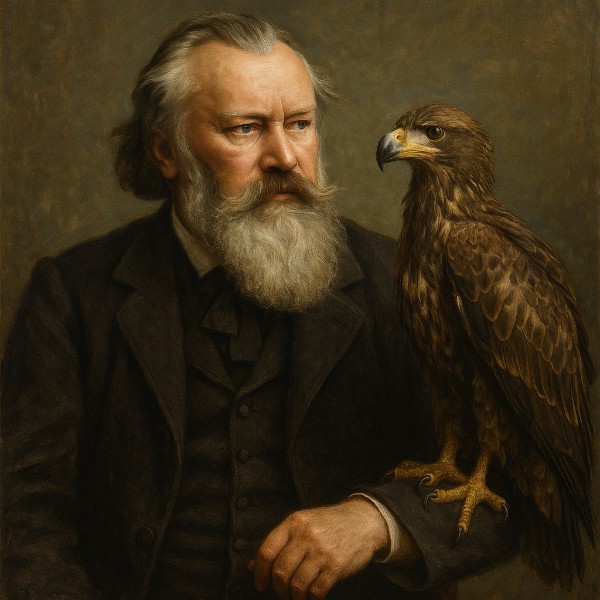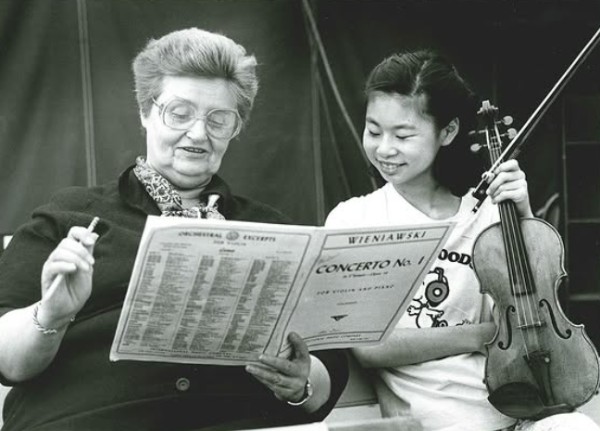Up the Hudson River from New York City lies the ‘hamlet’ of Valhalla, and there, in Westchester County, lies Valhalla Cemetery, created in 1889 as the cemeteries in New York City were reaching capacity. The design of the cemetery followed the naturalist lines first shown in New York City’s Central Park: curving paths traveling over hill and valley, beckoning the walker onward to see what lies around the next curve or over the next hill. Its frontage on the railroad track made it easy to visit with its own railway station. By the beginning of the 21st century, over 120,000 internments had occurred at the cemetery. Over time, the cemetery expanded from its initial 50 acres to 250 acres (1 square kilometre) to its current 461 acres (2.4 square kilometres).
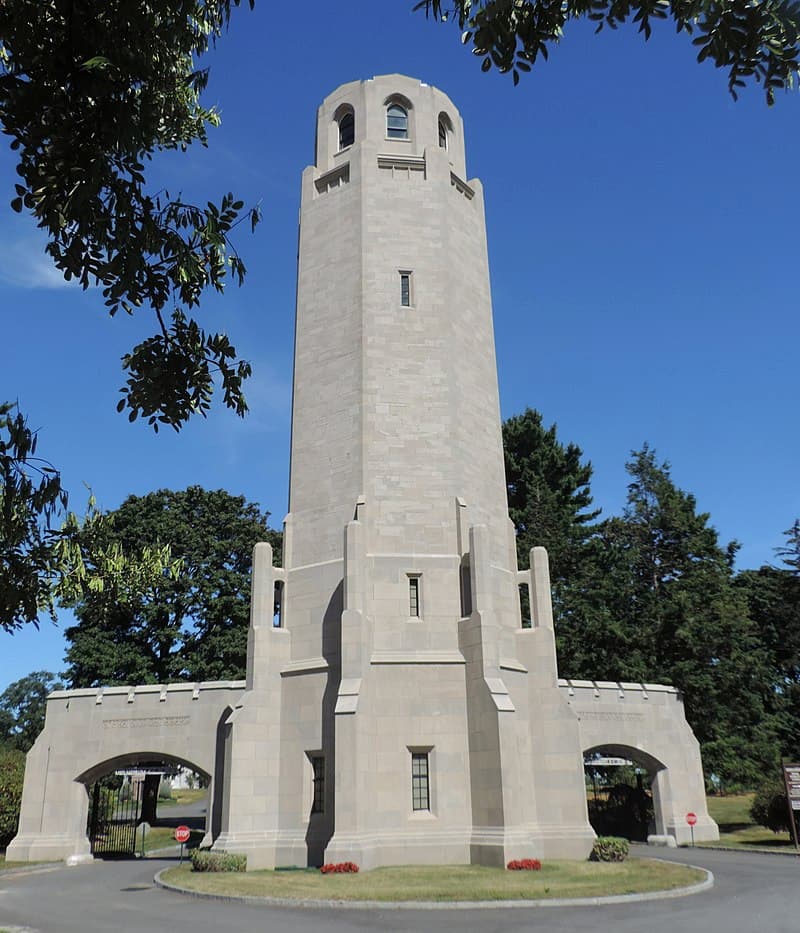
The Tower at the upper entrance of Kensico Cemetery (photo by Jim Henderson)
Because of its proximity to New York, musicians and others in the entertainment industry found their final homes in Valhalla. A special section, sponsored by the Actors’ Fund of America and the National Vaudeville Association, was kept for stage actors who had died in poverty.
Some of the mausoleum designs include influences from Egypt (very much in the news in the 1920s with the discovery of King Tut’s tomb).
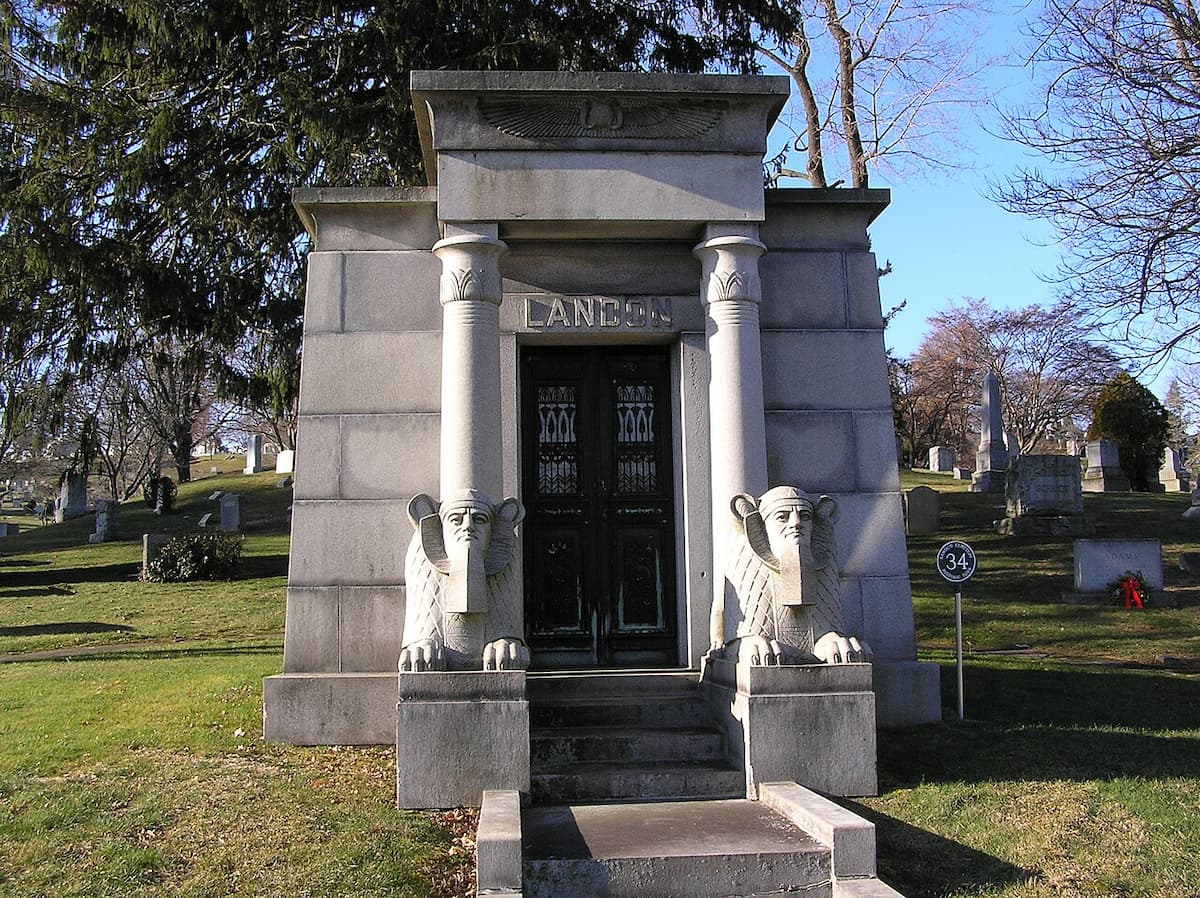
The Landon Egyptian Sphinx Tomb (Photo by Anthony22)
The Kane Lodge of the Freemasons made a unique tribute to the noted explorers in their membership, including Admiral Peary, discoverer of the North Pole. The description of the tomb in The New York Times said: ‘The monument consists of a sphere symbolic of the firmament, resting on a convergence of crests, suggestive of the sea, the earth, and the air… designed by Sloan & Robertson architects.’
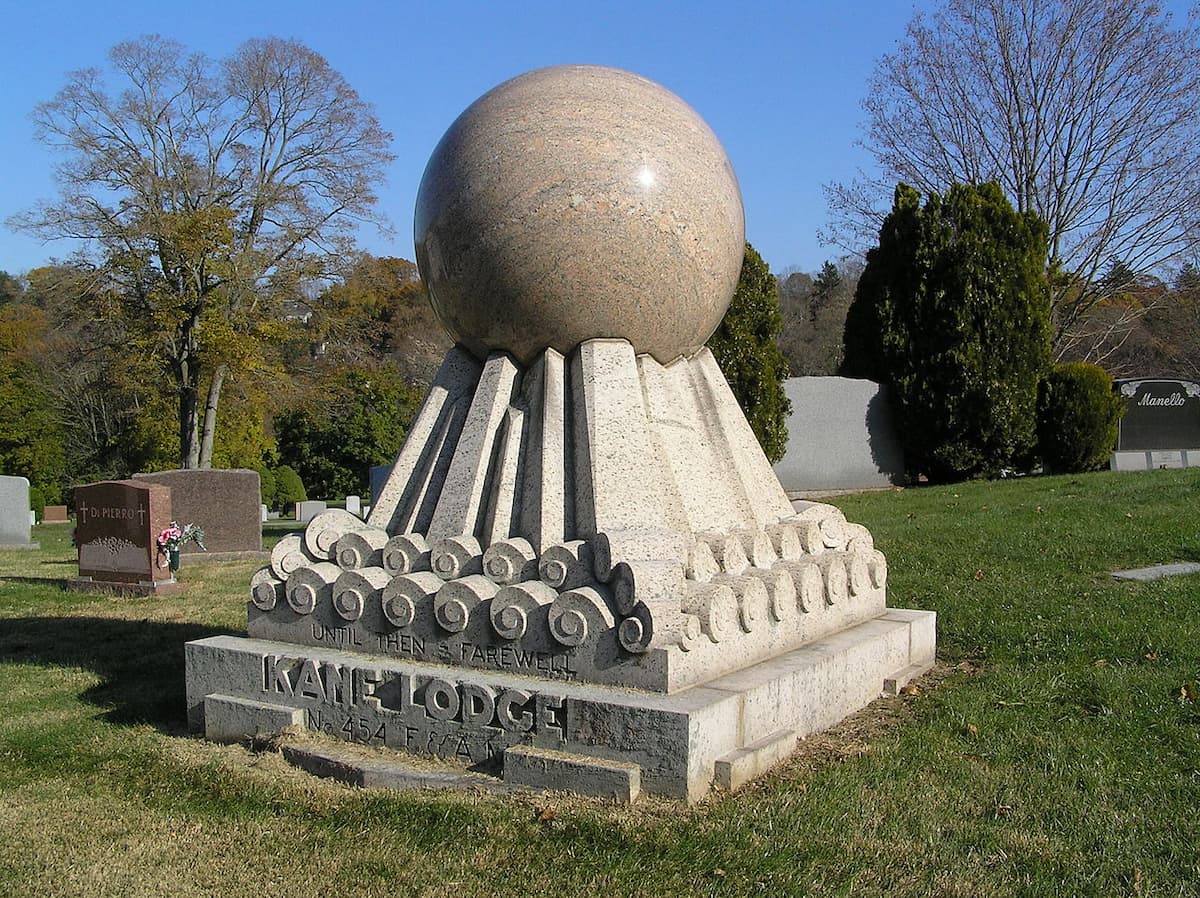
The Kane Lodge sphere in Kensico Cemetery
On the musical front, we have:
Composers:
Sergei Rachmaninoff (1873–1943), composer, pianist and conductor
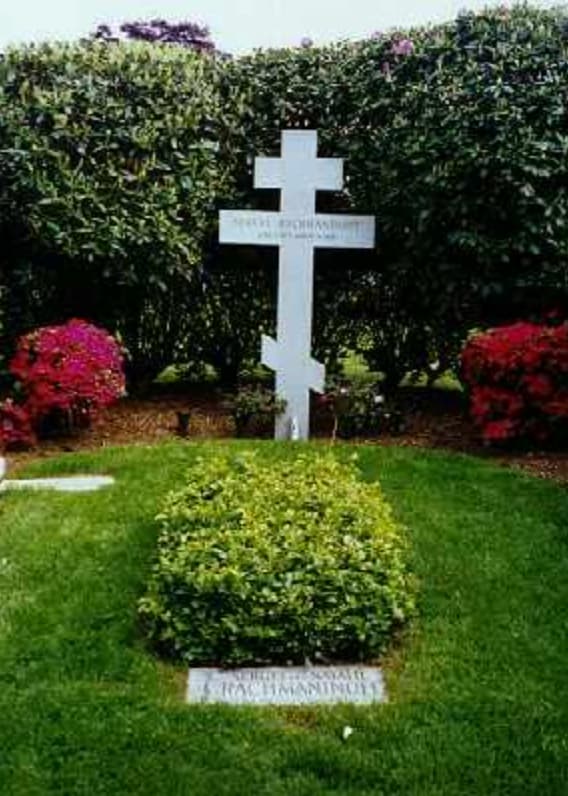
Grave of Sergei Rachmaninoff (photo by Jim Tipton)
Sergei Rachmaninoff: Ostrov myortvikh (The Isle of the Dead), Op. 29 (Philadelphia Orchestra; Sergei Rachmaninoff, cond.)
Deems Taylor (1885–1966), composer and journalist
Deems Taylor: Through the Looking Glass, Op. 12 – No. 3. Jabberwocky (Seattle Symphony Orchestra; Gerard Schwarz, cond.)
Sherman Edwards (1919–1981), Tony Award-winning composer and songwriter
Sherman Edwards: 1776 (arr. E. Sauter) – Overture (Peter Howard, cond.)
Peter DeRose (1900–1953), Hall of Fame composer
Peter DeRose: The Song of the Seabees (United States Air Force Heritage of America Band; Larry H. Lang, cond.)
Marion Bauer (1882–1955), American composer
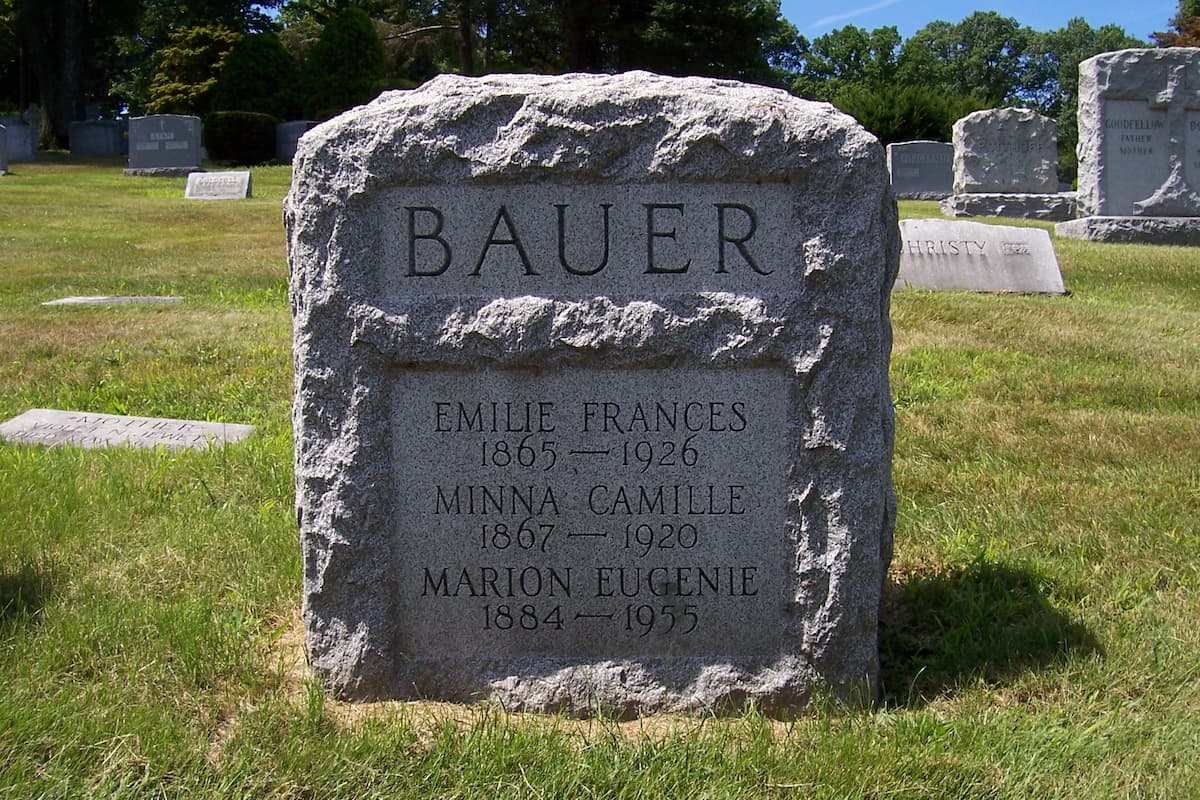
Grave of Marion Bauer (Photo by Susan Pickett)
Marion Bauer: A Lament on an African Theme, Op. 20a (Ambache Chamber Orchestra)
And many singers, including both opera and stage stars:
Vivian Blaine (1921–1995), actress and singer
Geraldine Farrar (1882–1967), operatic soprano
Geraldine Farrar sings the Jewel Song from Faust
Ezio Flagello (1931–2009) operatic bass
Anna Moffo (1932–2006), operatic soprano
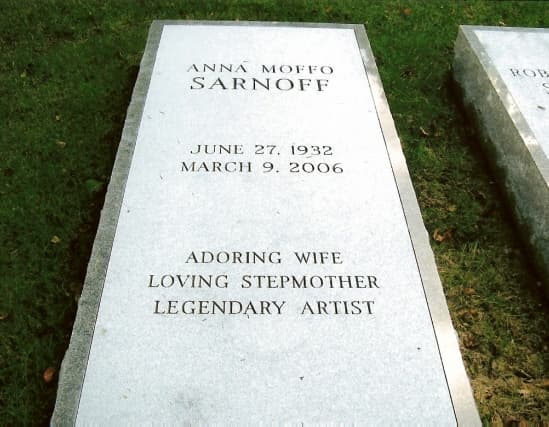
Grave of Anna Moffo (photo by Ginny M)
Gaetano Donizetti: La fille du regiment (The Daughter of the Regiment) – Act I: Chacun le sait chacun le dit (Anna Moffo, soprano; Ambrosian Opera Chorus; New Philharmonia Orchestra; Peter Maag, cond.)
Fritzi Scheff (1879–1954), operatic soprano and actress
Robert Merrill (1917–2004), baritone, Metropolitan opera star
Pietro Mascagni: Cavalleria rusticana – Il cavallo scalpita (Robert Merrill, Alfio; Robert Shaw Chorale; RCA Victor Symphony Orchestra; Renato Cellini, cond.)
Beverly Sills (1929–2007), operatic soprano
Ambroise Thomas: Mignon – Act II: Ah, pour ce soir – Je suis Titania (Beverly Sills, soprano; Ambrosian Opera Chorus; Royal Philharmonic Orchestra; Charles Mackerras, cond.)
The inhabitants of Valhalla Cemetery include congressmen and majors, actresses (Ann Bancroft) and cartoonists, fashion designers and painters, theatre impresario Florenz Zigfield and his actress wife Billie Burke, Robert De Niro’s father, and cellist Emanuel Feuermann. In short, the brightest lights on Broadway and in the arts found their new homes outside the city. Like the cemetery of Père Lachaise in Paris, you don’t know who you’ll find around the next corner.
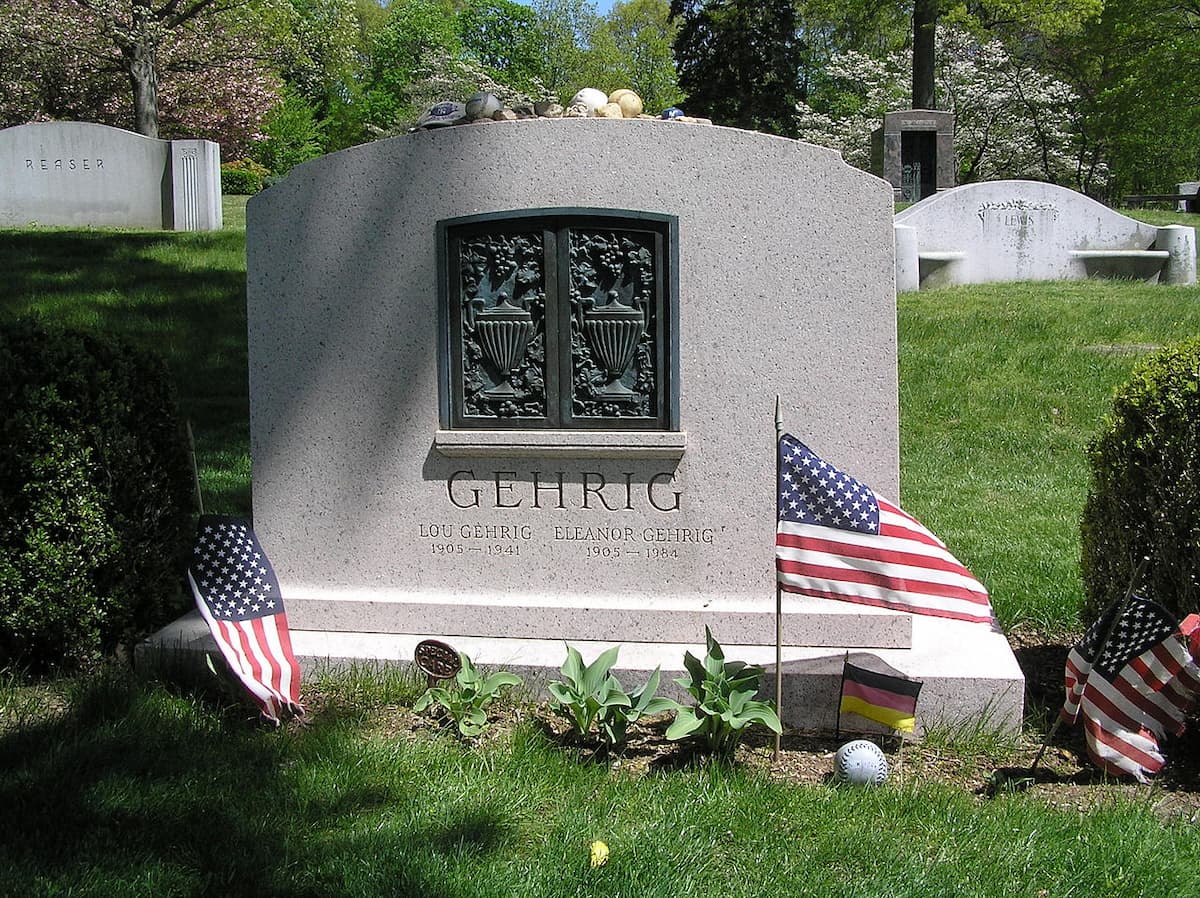
Grave of Lou Gehrig (photo by Anthony22)
For more of the best in classical music, sign up for our E-Newsletter

